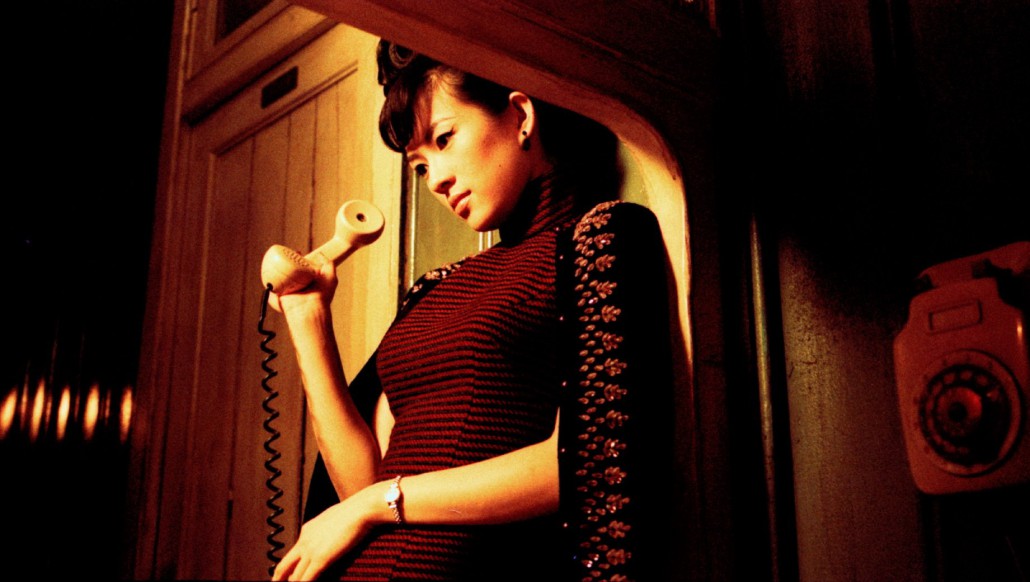
Wong Kar-wai is one of Asia’s most renowned filmmakers. If you’re a hardcore film buff, you’ve probably heard of him. If not, he’s definitely a name to remember regardless of whether or not you’re into full-blown film theory. Born in Shanghai, Wong immigrated to Hong Kong as a child and later kicked off his career there as a television screenwriter. He began directing films in the late 1980s as part of the Hong Kong Second Wave, establishing a trademark style marked by elliptical plotlines, emotional resonance, moody music, and melancholic characters. From what I see, Wong is like the filmmaker version of the renowned Japanese writer Haruki Murakami, whose novels and short stories enjoy similar defining characteristics.
Like Wong, Murakami intersperses his works with hints of Nat King Cole and focuses on what you could call “almost-love-stories”, or romances that don’t fit within standard molds by focusing more on poignant drama than syrupy butterflies-in-stomachs narratives. Conversely, if there’s any director who can successfully adapt a Murakami novel onto the silver screen, it’d probably be Wong.
I’d advance this argument on the back of 2046, a Wong film that heavily evokes the ethos of Murakami — perhaps more specifically, the novel 1Q84. 2046 is the third part of a loose trilogy that begins with Days of Being Wild (1991) and continues with In the Mood for Love (2000). The first two members of this Wong trilogy are still quite Murakami-esque, but didn’t spark that connection right away. They’re probably more reminiscent of Murakami’s earlier novels, which are generally shorter and have simpler storylines. Hewing more closely to Murakamai’s later works, 2046 represents a more ambitious effort — Days of Being Wild and In the Mood for Love introduced various characters and storylines that had room for further exploration, and 2046 fills in that room both literally and figuratively.
The film’s numeric title comes from a hotel room in In the Mood for Love where the protagonist, a contemplative journalist named Chow Mo-wan (Tony Leung), engages in an half-affair-half-friendship with his neighbor Su Li-zhen (Maggie Cheung). If you’ve seen In the Mood for Love, you’ll know the affair/friendship ends when Chow goes to Singapore. But Chow’s not done with the room yet. Room 2046, Chow says, is where people go to relive their pasts — and after returning to Hong Kong from Singapore, he tries to rent the room out again. Unfortunately, 2046 isn’t available at that moment, and Chow gets 2047 next door instead. Nevertheless, he still ends up getting involved in various ways with the transient residents of 2046.
Like Chow’s past, room 2046 is a complicated animal. With multiple residents across time come multiple story arcs, most of which connect in some way to Chow’s difficulties in getting over In the Mood for Love‘s Su Li-zhen. First is a Singapore-heavy narrative, which starts off lightly in the beginning, when Chow realizes a woman he knew from the city-state has rented room 2046, and only truly gets fleshed out near the end. The next 2046 resident Chow encounters is the landlord’s daughter, Wang Jing-wen (Faye Wong). Wang is in love with a Japanese man, and her romance explodes on the rocks of her heavily anti-Japanese father. Chow consoles and advises Wang, and the two become close. Eventually, Wang rotates out and Chow meets Bai Ling (Zhang Ziyi), a flirtatious mainlander nightclub girl. The two start having oodles of passionate, energetic sex, but begin to discover that the intersection of passion and love is not so clear.
If you think that’s hard to keep track of, sucks for you — 2046 has yet another narrative arc, a futuristic fictional world created from Chow’s writings that roughly tie his experiences with the room’s various real-world residents together. This world is a vast dystopia connected by a train network on which lonely souls try to reach a mystical place called “2046” where “nothing ever changes”. No one’s ever returned from “2046” except Chow’s narrator, a Japanese man named Tak, who discusses his experiences with train-board androids in an extended metaphor for Chow’s real-world relationships.
Needless to say, 2046 is rather complex, and compared with some of Wong’s other films, is also quite long (at least 30 mins longer than Days of Being Wild, In the Mood for Love, and Chungking Express). It takes time to acclimate to the movie, a contrast from In the Mood for Love, whose general structure is apparent quite early on. 2046 enjoys the same visual and auditory mannerisms as Wong’s other films, but you have to finish the entire piece before you can feel the cloth its disparate strings of plot are trying to weave. This invites comparison, as I previously mentioned, to Haruki Murakami’s 1Q84, a 946-page behemoth that also mashes multiple narrative strands together with almost-love-story-like idiosyncrasy. 1Q84 and 2046 are somewhat like mystery novels in the sense that they take significant effort and upfront investment to appreciate; both also contain inner meta-narratives with a fantasy/sci-fi flair. If you can enjoy 1Q84, you can probably enjoy 2046 — but not everyone likes 1Q84.
Escapism still rings strongly in 2046, and that element may be the ultimate unifying ideal in works by idiosyncratic auteurs like Wong Kar-wai and Haruki Murakami (see our review for the movie adaptation of Norwegian Wood). 2046 blends fantasy and reality into a perfect storm; it’s fierce, messy, and hard to track…but moving and powerful to watch.
2046 — Hong Kong. Directed by Wong Kar-wai. First released May 2004. Running time 2hr 9mins. Starring Tony Leung, Zhang Ziyi, Faye Wong, Li Gong, Takuya Kimura.